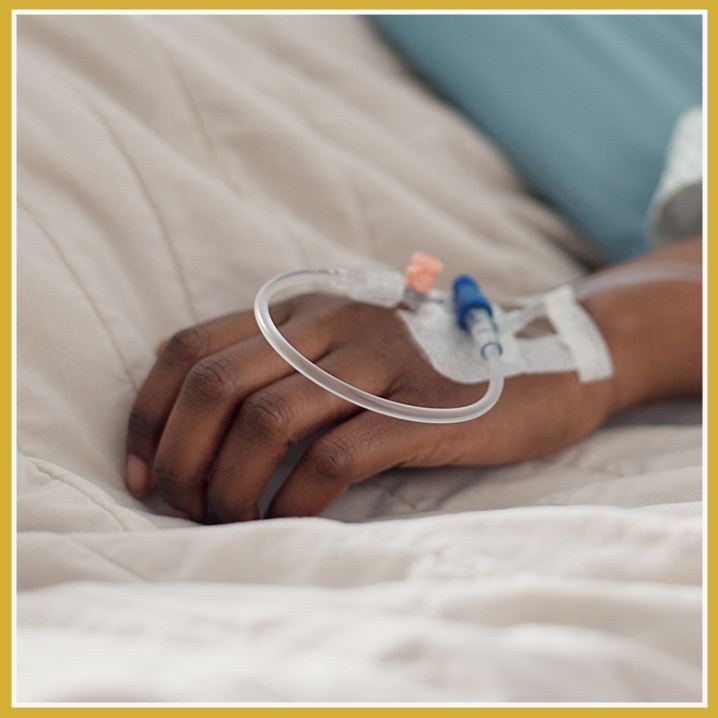
Nationwide Guillain-Barré Syndrome (GBS) Vaccine Attorney
Call the Lawyers at Jeffrey S. Pop & Associates
Guillain-Barre syndrome (GBS) can be triggered by infections or immunizations. The influenza vaccination has been associated with an increased risk of GBS. Following a vaccination, an autoimmune response occurs which affects the peripheral nervous system. GBS can present with a variety of neurological symptoms such as numbness, tingling, and weakness. The myelin portion of the nerves is affected by the inflammation resulting in motor dysfunction. Cases have been reported following administration of influenza, Hepatitis B, MMR, HPV, Varicella, and Meningococcal vaccinations.
GBS is considered a rare disease. Nevertheless, there are approximately 3,000 to 6,000 individuals who are afflicted by GBS each year, according to the CDC. GBS can result in permanent leg or arm weakness and paralysis. GBS can result in death.
What Are the Symptoms of Guillain-Barré Syndrome?
The symptoms of Guillain-Barré Syndrome start with weakness or tingling in the feet/legs or hands/arms. The sensation can spread until the person becomes paralyzed.
Common symptoms include:
- Pins and needles in arms and legs
- Difficulty chewing or swallowing
- Weakness in arms and legs
- Difficulty in breathing
Our vaccine injury attorneys can provide affordable legal advocacy for individuals who have suffered from severe vaccine injuries. Let us represent you in court, allowing you to focus on your recovery. Reach out online or call (888) 891-2816 today!

Choosing Experience & Compassion What Sets Jeffrey S. Pop & Associates Apart?
-
Expertise in Vaccine Injury LawOur team specializes exclusively in vaccine injury cases, bringing deep knowledge and a focused approach to securing justice and compensation for our clients.
-
Personalized Client CareWe prioritize individualized attention, ensuring each client receives compassionate support and tailored legal strategies to meet their unique needs and circumstances.
-
Proven Track RecordWith a history of successful outcomes and satisfied clients, our firm has established a reputation for effectively navigating the complexities of vaccine injury claims.
-
No Cost To YouOur commitment to making legal representation accessible and risk-free ensures you will not incur any attorney fees. We are dedicated to providing quality legal services without financial barriers.
What Vaccines Lead to GBS?
Guillain-Barré syndrome can stem from many different medical conditions. Patients often do not recognize the symptoms right away, as it can take up to several weeks after the vaccination for the symptoms to surface.
These are some of the most commonly reported vaccines that have led to GBS:
Patients who develop GBS often face a long recovery. While GBS is treatable, the time and effort it takes to heal varies greatly. If after a vaccination you begin feeling the symptoms of GBS, do not hesitate to seek medical attention. Our role is to help you determine whether or not your illness stemmed from a reaction to a vaccine.
What Causes Guillain-Barré Syndrome?
Scientists are not sure what causes Guillain-Barré, but they do know the disease is not contagious. When GBS is triggered in a patient, their immune system begins to attack itself. The immune system attacks the myelin sheath that surrounds the axons of peripheral nerves as well as the axons themselves.
The myelin sheath is responsible for the transmission of nerve signals. When myelin sheath is injured or broken the nerves are unable to transmit signals efficiently. This is why the muscles begin to lose their ability to respond to the brain’s signals. The nerve network is a two-way street meaning, the patient may lose the ability to respond to other sensations like heat, pain, or extreme cold.
How is Guillain-Barré Syndrome treated?
GBS does not currently have a cure but there are treatments to help patients recover. The two most common therapies available to patients are plasma exchange and high-dose immunoglobulin (IVIG) therapy. The critical aspect of both therapy plans is to keep the patient’s body working during recovery. Some patients must be placed on ventilator assistance to ensure they are able to breathe.
Our No Fees or No Cost Policy
This is the time to focus on recovery. Our commitment to you once you retain our services is to handle the legal aspects of your case. We are professional, courteous, and one of the highest-rated vaccine injury firms across the country.
The Vaccine Injury Compensation Program pays reasonable attorneys’ fees and costs separately from any compensation award. Therefore, you do not need to worry about any out of pocket expenses to prosecute your case. Our law firm never requests our clients to advance any type of cost in prosecuting their case.
Reach out to us today for a free consultation and take the first step towards justice.


Our Clients Trust In Our Experience & Results Hear from Those We've Helped
At Jeffrey S. Pop & Associates, your satisfaction is our priority! See for yourself what our clients have to say about working with us.
-
"Compassionate & Patient"There are no words to express my appreciation.- L.J.
-
"They Are So Knowledgeable"I don’t know if I can even find the words to describe how fortunate I am to have contacted Jeffrey S. Pop and Associates.- M.A.
-
"Great Overall Experience"Thank you Mr. Pop and your amazing associates for being my voice in a very difficult situation. I would highly recommend you for this professional service. May God bless all of you and your state.- C.W.
-
"Cannot Recommend Them Enough"There are no words to describe my gratitude and thanks from the bottom of my heart to Jeffrey Pop and his staff.- D.B.
-
"Extremely Satisfied"I don’t think I could have had a better outcome or person to handle my case, I am forever grateful!- K.N.
-
"By Your Side"I can’t say enough how satisfied I am with their service.- J.E.
-
"They Truly Care"So compassionate and truly interested in my well-being.- M.M.
-
"Forever Appreciative"I want to thank you for everything you have done to help me.- B.T.